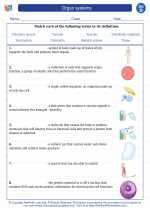Circulation
Overview
Circulation refers to the movement of blood through the heart and blood vessels to deliver oxygen and nutrients to the body's tissues and remove waste products.
Components of Circulatory System
The circulatory system consists of the heart, blood, and blood vessels. The heart is the muscular organ that pumps blood throughout the body. Blood is the fluid that carries oxygen, nutrients, and waste products. Blood vessels are the tubes through which blood flows, including arteries, veins, and capillaries.
Types of Circulation
There are two main types of circulation in the body: pulmonary circulation and systemic circulation. Pulmonary circulation is the movement of blood between the heart and the lungs, where carbon dioxide is exchanged for oxygen. Systemic circulation is the movement of blood between the heart and the rest of the body, delivering oxygen and nutrients and removing waste products.
Functions of Circulation
The circulatory system serves several important functions, including:
- Transporting oxygen and nutrients to the body's tissues
- Removing waste products, such as carbon dioxide and urea
- Regulating body temperature
- Defending against infection and disease
Study Guide
Here are some key concepts to focus on when studying circulation:
- Structure and function of the heart
- Composition and functions of blood
- Types and functions of blood vessels
- Pathway of blood flow through the body
- Gas exchange in the lungs
- Regulation of blood pressure
It's also important to understand the relationship between circulation and other body systems, such as the respiratory system, digestive system, and immune system.
.◂Science Worksheets and Study Guides Fourth Grade. Organ systems
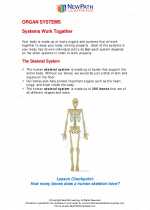
 Worksheet/Answer key
Worksheet/Answer key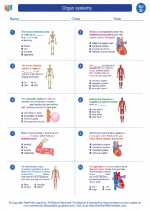
 Worksheet/Answer key
Worksheet/Answer key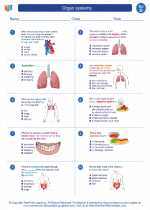
 Worksheet/Answer key
Worksheet/Answer key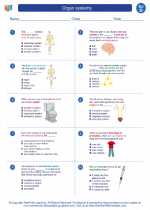
 Vocabulary/Answer key
Vocabulary/Answer key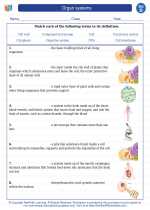
 Vocabulary/Answer key
Vocabulary/Answer key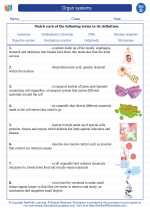
 Vocabulary/Answer key
Vocabulary/Answer key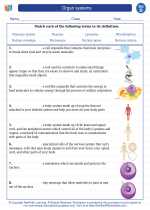
 Vocabulary/Answer key
Vocabulary/Answer key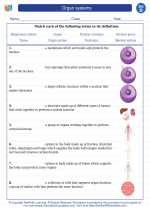
 Vocabulary/Answer key
Vocabulary/Answer key